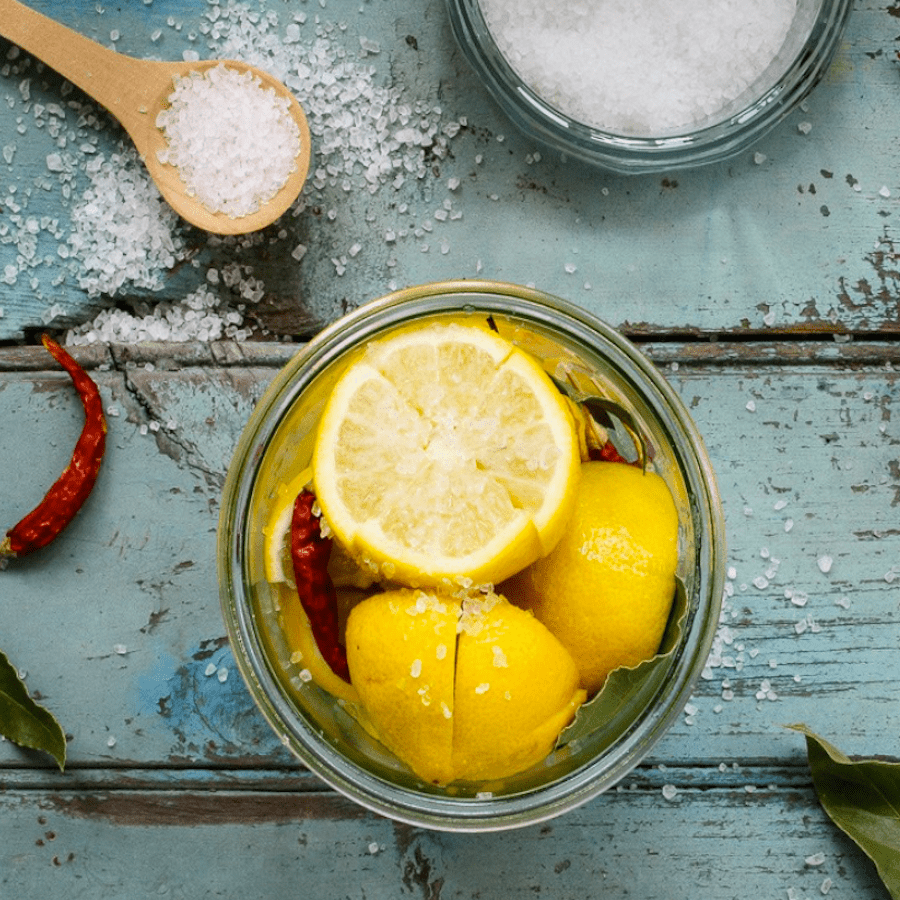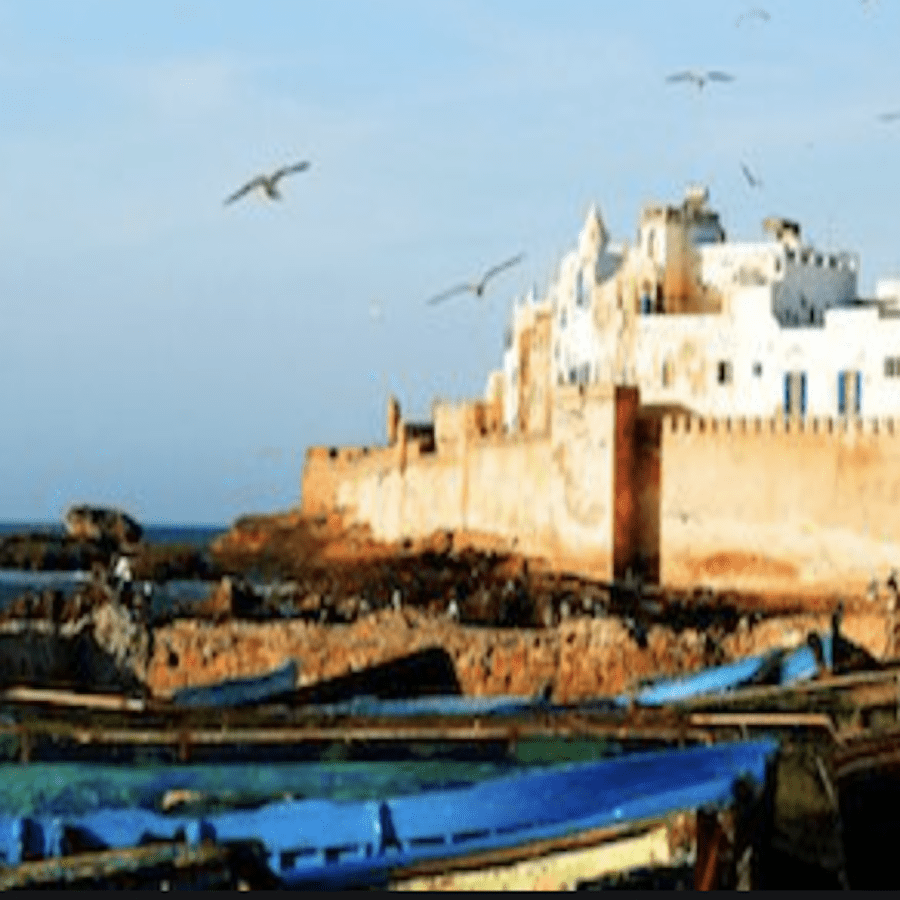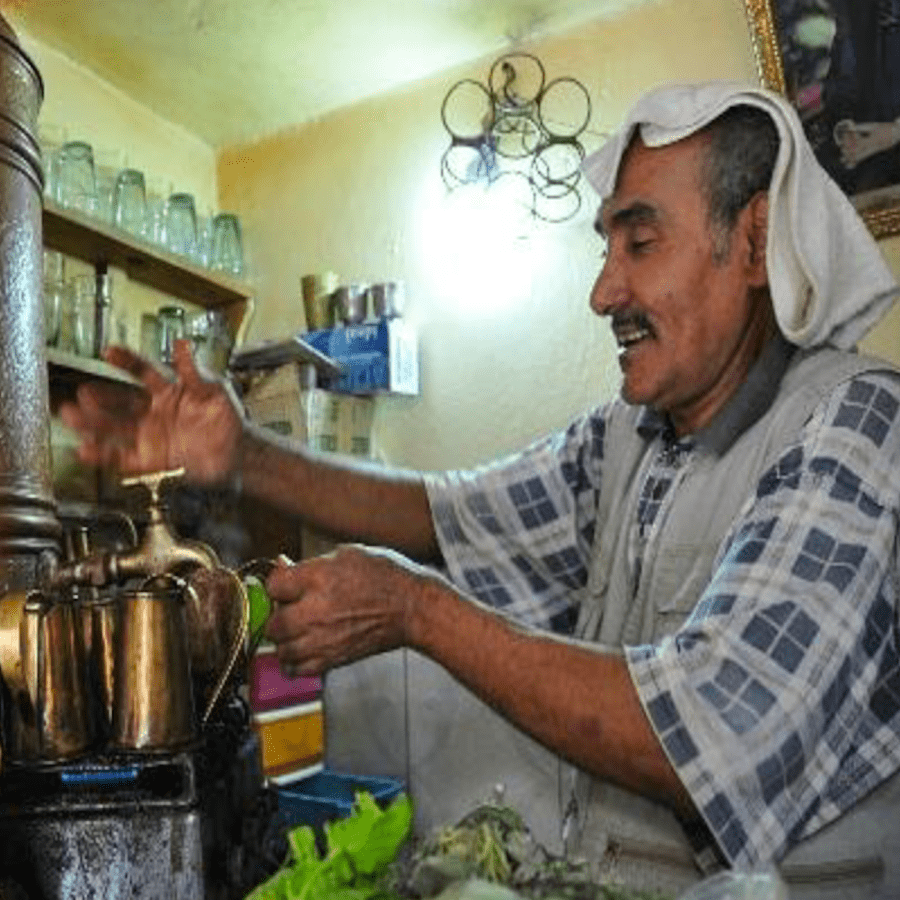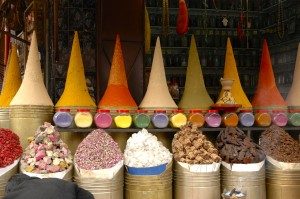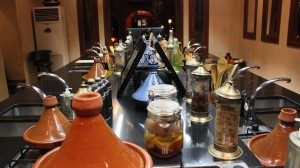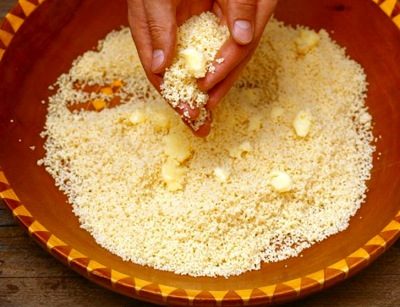Tag: Moroccan Spices
From the populated ancient medinas in the Imperial Cities to the dusty Desert region to the great Southern rural villages, seaside towns and farm communities, a Travel Exploration Moroccan Food Tour
The great sea voyages of the Portuguese explorers Ferdinand Magellan, who served for a while in Morocco, Vasco de Gama and the Spanish captain Christopher Columbus expanded trade routes around the world and especially the spice trade and the security of these routes was crucial. Morocco was on the route between Europe, the Middle East and Asia and therefore acquired a number of spices as Portuguese and Spanish enclaves and ports were established along the Moroccan coast.
Learning some of the basics of Moroccan cooking can be an enjoyable experience and adds to your own culinary skills back home. Many riads offer cookery classes for their clients during their stay. These usually begin with a trip to the souk accompanied by one of the staff to buy produce and spices. In contrast to shopping at home everything is bought fresh, for home-cooking. The market stalls include piles of spices, and fresh fruits, nuts and fine local vegetables all beautifully laid out with the fragrance of mint and cilantro . Shopping in the souks of Morocco is a keen sensory experience, as well as a chance to experience local daily life as buyers and sellers haggle over prices.
Moroccan cuisine is the culinary star of North Africa. Imperial and trade influence has been filtered and blended into Morocco’s culture. Being at the crossroads of many civilizations, the cuisine of Morocco is a mélange of Arab, Berber, Moorish, French, Middle Eastern, Mediterranean African, Iberian, and Jewish influences. Moroccan cooking is enhanced with fruits, dried and fresh — apricots, dates, figs, and raisins, to name a few. Lemons preserved in a salt-lemon juice mixture bring a unique face to many Moroccan chicken and pigeon dishes. Nuts are prominent; pine nuts, almonds, and pistachios show up in all sorts of unexpected places.

